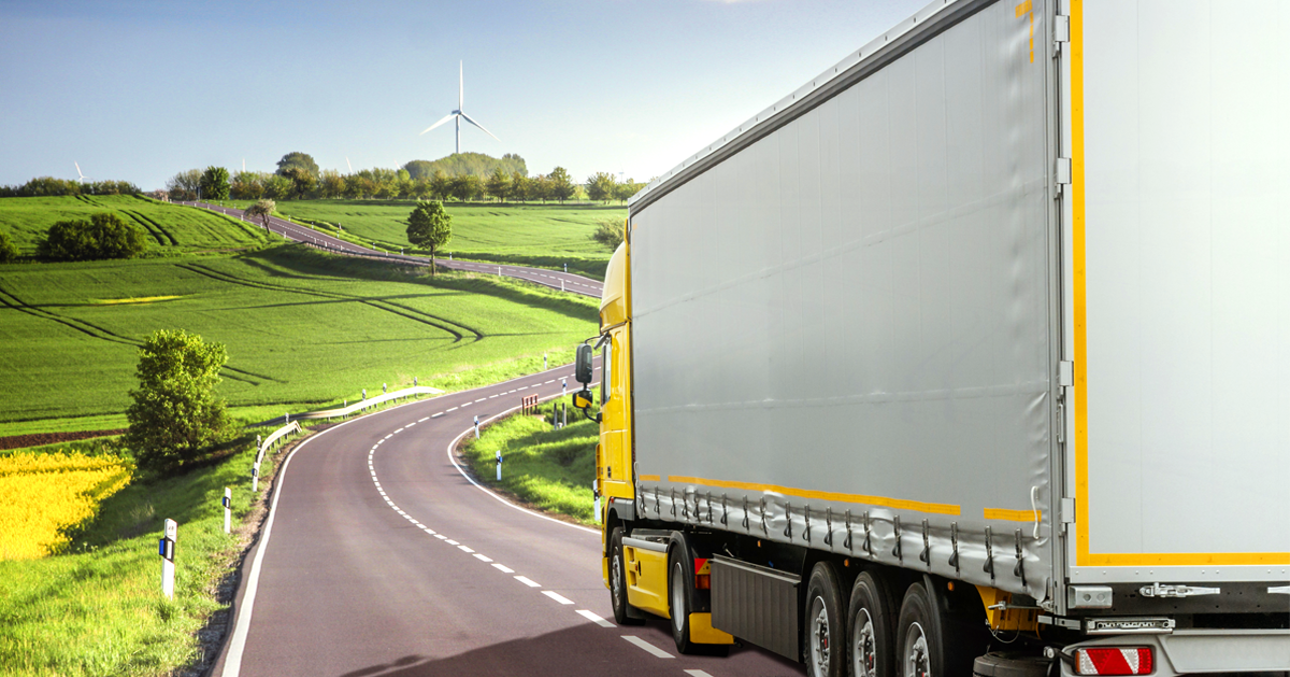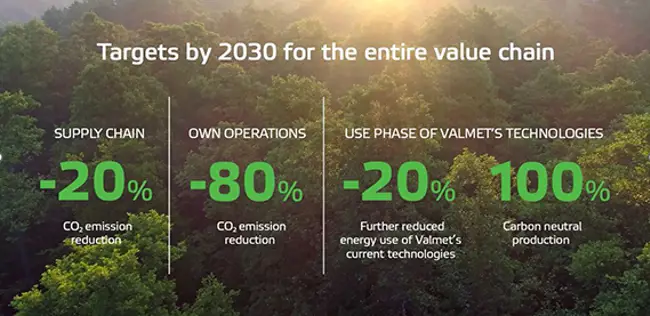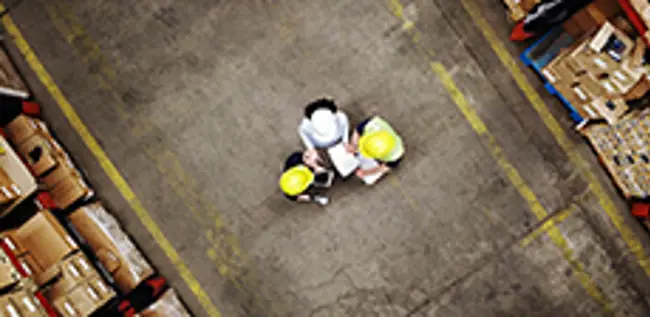Valmet supports its suppliers to reduce their CO2 emissions
Sep 8, 2023
As part of its ambitious climate program, Valmet strives to reduce the CO2 emissions in its supply chain by 20 percent by 2030*. Our supplier network includes around 30,000 active suppliers in 60 countries around the world, and a significant impact on reaching the climate program target comes from engaging suppliers in climate action.

Valmet introduced its climate program in 2021 with ambitious targets to reduce CO₂ emissions in the entire value chain, including the supply chain, own operations, and the use phase of Valmet’s technologies. The key actions for reducing the supply chain emissions include for instance increasing the share of recycled steel, supporting CO₂-intensive suppliers in reducing their emissions and developing freight planning.
“Targeting for a 20-percent reduction in our suppliers’ CO2 emissions might seem humble, but it in fact isn’t. Our supplier network extends to many so-called low-cost countries where emission levels are typically high. We as a global company feel it is our responsibility to support such companies to improve their sustainability,” Jani Suomalainen, VP, Supply Chain at Valmet, says.
“The CO2 intensity is still on the same level as when we started the program, mainly because our purchases have further increased in the high-emission countries such as India and China. When it comes to logistics, however, the air freight was already reduced by 12% by weight in 2022 by better planning and payloads which reduced emissions per tonne,” he continues.
Use or recycled steel above global average
Valmet has systematically progressed with the target to increase the share of recycled steel in its products. We are also seeking to decrease the weight of our products and to introduce alternative materials.
Listen to the podcast: Making an impact with recycled stainless steel
“We have taken steps in increasing the share of recycled steel in our products. Two thirds of the steel used in our foundries is already recycled and about half of the steel that our top 10 raw-material suppliers deliver to us is recycled. This is much higher than the average globally, as around 30% of all steel produced globally is created through recycling. Steel production is the big thing in our upstream supply chain when it comes to the emissions: every tonne of produced steel generates 2-7 tonnes of CO2 emissions,” Suomalainen summarizes.
Engaging suppliers to climate action
To further strengthen the cooperation with suppliers in the field of sustainability, Valmet has implemented a Sustainability Engagement Program since 2018. The program supports and monitors suppliers’ performance and provides hands-on concrete tools and training to take the most critical steps to develop their sustainability practices. The program plays a key role in engaging suppliers in climate action based on an open dialogue and collaborative approach.
“We have deepened our co-operation with selected suppliers, and already 40 high-emitting companies have committed to reducing their emissions, and the target is to engage 150 more in 2023-2025. We offer concrete tools for our suppliers to support their transition towards low carbon operations such as e-learning material, a CO2 calculator and a best practice library. Our Supply Chain experts all over the world are also available for hands-on support, whether it is about increasing the use of recycled raw materials, changing fossil fuel-based production systems to renewable energy or developing low-carbon logistics chains. The easiest and fastest action for many companies is to start buying CO2 neutral electricity,” Suomalainen says.
Freight planning continues
As part of its Climate Program actions, Valmet is centralizing its spending on selected suppliers offering low carbon transportation and continuing to develop freight planning.
“We have tested renewable fuels in road and air transportation, and have increased transportation methods that offer lower emissions, such as rail and sea transportation. However, over 95% of all fuels used in logistics globally are still fossil-based. But the work continues and like I stated, we have already been able to reduce the emissions per tonne as air freight was reduced by 12% by weight in 2022. I´m very happy about the progress concerning logistics emission reductions so far”, says Suomalainen.
Going forward
“Going forward with the program and to reach our 20% emission reduction target, we will continue to engage more suppliers and plan to engage all our key logistics and goods suppliers by end of 2024. We have a variety of ways to do so: we encourage suppliers and Valmet representatives to complete our comprehensive set of e-learning trainings, develop tools for more accurate CO2 reporting and integrate emission criteria more strongly into tendering processes”, Suomalainen says.
In addition, Valmet has launched a new supplier innovation process, including a possibility for its suppliers and Valmeteers to share their ideas on reducing CO2 emissions. We have also created a supplier innovations introduction video to encourage suppliers to deliver innovations to us.
* Baseline 2019
Related articles






